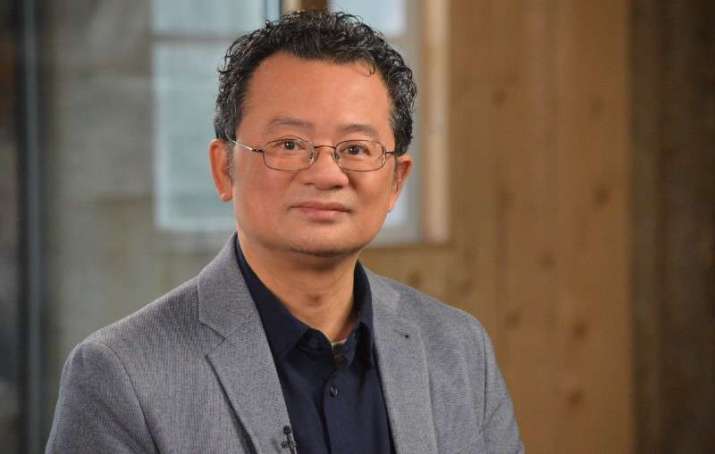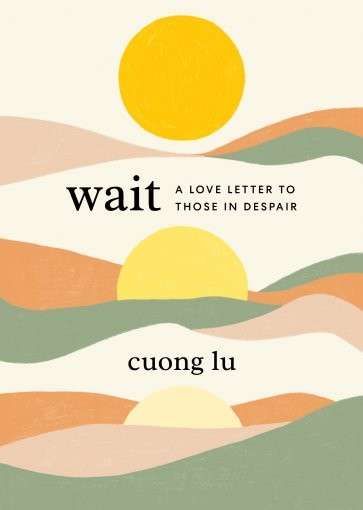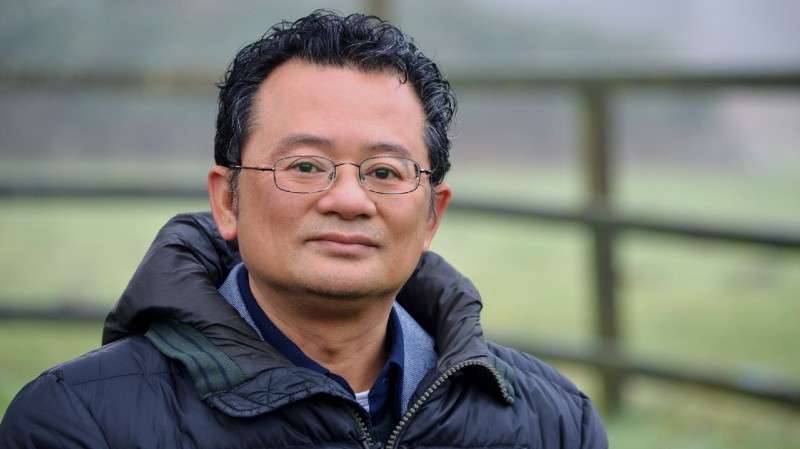
Cuong Lu is a Buddhist teacher, author, scholar, and founder of the Mind Only School in the city of Gouda in the Netherlands. Born in Nha Trang, Vietnam, in the midst of the Vietnam War, Lu and his family fled to the Netherlands when he was 11 years old. He was subsequently ordained as a monk under the guidance of Zen Master Thich Nhat Hanh, and in 2000 received recognition as a teacher in the Lieu Quan line of the Linji school of Zen Buddhism. Author of The Buddha in Jail: Restoring Lives, Finding Hope and Freedom (OR Books 2019), it is with pleasure that we sat down with Lu to discuss his new book Wait: A Love Letter to Those in Despair (Shambhala 2021).
“I need you to share your wisdom with other people. When you share your wisdom with other people, you touch their wisdom also,” Cuong Lu tells me as I discuss my plans to write a review of his new book. “I believe wisdom will spread faster than the coronavirus, because when you really share from your heart, from your wisdom, people recognize it right away, they can feel that. They recognize your wisdom, but at the same time they recognize their wisdom also. And because they recognize their wisdom, they can share, and other people also recognize they have the wisdom also.” Lu’s faith in me is deeply touching, and his faith in humanity’s potential for wisdom feels like a breath of fresh air at a time when distrust and despair are widespread.
The notions of sharing and interbeing—a term coined by Zen Master Thich Nhat Hanh—are intrinsic to Lu’s teachings as well as to his creative process. “Somehow, I believe I’m not the only one who’s writing at the moment I write,” he explains. “At the moment I am teaching, I believe that my teacher Thich Nhat Hanh is also with me. I think that the Buddha is there with me too. So I feel we all have this capacity to be connected with the whole cosmos and, at the moment of writing, I don’t try to write as one person. I try to make this kind of connection so that the wisdom can be there for my readers, and for me too.”
As he was fleeing Vietnam with his family in 1975, Lu saw a fellow passenger on the ship shot and killed, engendering a question that is forever present in his mind: why do people hurt each other? With the increase of gun violence, mass shootings, war, and suicide rates in the world, Lu was spurred to write this book to save lives. If the reader can take in nothing else, he says, at least they can take in the first word of the title, Wait. To anyone who is thinking of taking another person’s life, or their own, he wants them to bide some time, to prevent them from acting out of delusion, and instead to help them to connect with their inner wisdom.

Stop!Wait! Every life is precious. Don’t kill others or yourself with bullets, words, rage, or ignorance. Defuse the bombs in your heart. Allow me to help soothe your pain and the fear you feel so strongly. You’re angry now, but if you kill yourself or others, you’re also killing me. I am you, and I’m tired of dying. (5)
Allow me to help soothe your pain and you’re also killing me; I let these words sink in as I read them. Lu’s book is a love letter because it comes straight from his heart into mine, if I allow it. It is also a love letter because he makes it clear that even when we feel despair and we think that we are completely alone, this is not so. We are all more than one person, because we are interconnected. Now you and I have found each other, he writes, sit with me. Lu offers himself to the reader wholeheartedly. He is right there with us, he assures us. It can only be so, because we are all interconnected; it does not matter what our religion is, whether or not we are Buddhists. Lu offers himself to all, and when his friends and disciples tell him that they feel his presence during times of deep suffering, he tells me enthusiastically that his answer is: “Of course, I am always there with you!”
We need not be afraid of suffering, Lu writes, because it is intrinsic to our existence and it is what binds us together and helps us to touch our wisdom:When we allow ourselves to feel the pain, we’ll understand ourselves, our children, and our parents, perhaps for the first time. We don’t like pain, but pain can be the cost of admission to gain understanding. (58–59)

Buddhism teaches us to embrace suffering, and Lu highlights the fact that the COVID-19 pandemic can also provide us with insight. Many of us are restless as we desperately wait for widespread vaccination to allow us to return to normality. Yet our society, with its focus on economic growth, is incredibly out of balance and we would do better to take this opportunity to find a new balance, where happiness can be shared.
Economic growth covers over the need to help each other. So many people in the West have enough for themselves and don’t see that everything is interconnected. They think they don’t need others and that others should shoulder their own burdens, that it’s not our co-responsibility to help. Economic growth can mean growing apart, separating ourselves from one another. It seems so obvious, but in fact this is a great disease in our time. (122)
We think that we can have our own happiness, Lu tells me, but that is not so; happiness can only exist when it is shared. The solution is to help each other, because when we punish each other, we destroy each other and bring humanity and other species to extinction. “No matter how bad the situation is, start to help. When you’re helping, you make the situation better,” he explains. “And help with respect, because the other and you are the same.”
References
Lu, Cuong. 2021. Wait: A Love Letter to Those in Despair. Boulder, Colorado: Shambhala Publications.











